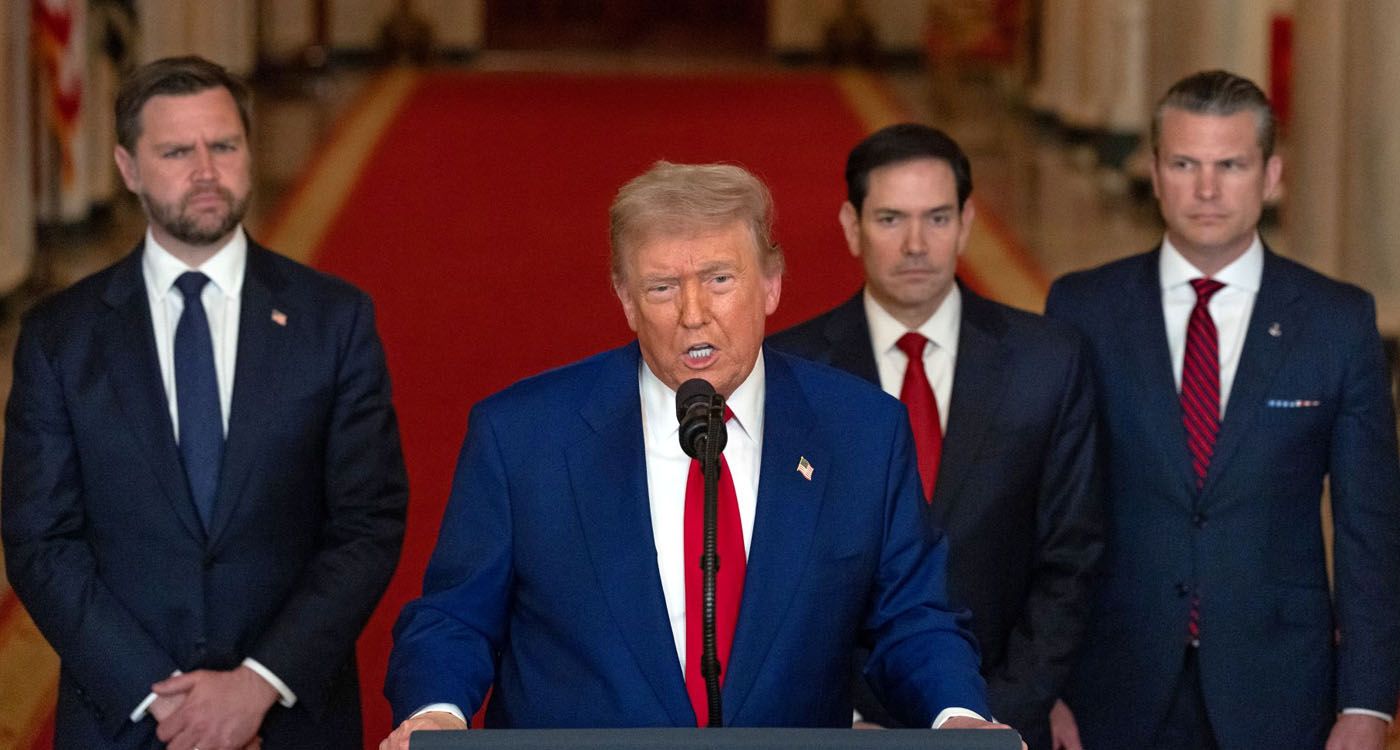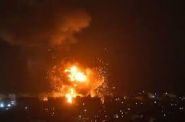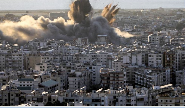- Home
- War in the Middle East
- Trump’s Thunderbolt: America Attacks, Iran Shakes, the World Waits

US President Donald Trump addresses the nation, alongside US Vice President JD Vance (L), US Secretary of State Marco Rubio (2nd R) and US Secretary of Defense Pete Hegseth (R), from the White House in Washington, DC on June 21, 2025. © CARLOS BARRIA / POOL / AFP
A night that will be etched into Middle East history has just come to an end.
In the early hours of June 22, 2025, Donald Trump launched a strike. Six B-2 Spirit stealth bombers took off from a US base and dropped twelve GBU-57 bunker-buster bombs on Iran’s underground Fordow nuclear site, while 30 Tomahawk missiles targeted facilities in Natanz, Arak and Isfahan. The US remains the only country with bombs powerful enough to reach targets buried 80 meters deep. A sudden and dramatic move intended to bring Iran’s nuclear push to a halt.
Donald Trump wasn’t slowed by debate or hesitation. “Iran has a choice: peace or tragedy,” he declared in an icy tone just after the strikes, staying true to his trademark pragmatism. There was no room for diplomatic illusions, only a hard truth: America is back in control, on its own terms and on its own timeline.
The Iranian regime now finds itself backed into a corner. It can either opt for what would be a “messianic suicide” by striking American interests in the region—igniting a conflict no one can fully control—or Ali Khamenei can recognize that this path to the abyss would spell the end of his regime, and accept a ceasefire offer as a way out. But that would be to misread the mullahs, who remain convinced their fate is divinely guided.
Meanwhile, in Lebanon, Hezbollah is stoking the front, but keeping its distance for now.
Naim Qassem, the secretary-general of the pro-Iranian militia, has already warned that Hezbollah will not remain neutral. Was this a message aimed at his base, or a genuine warning? One thing is clear: at the first missile fired from Lebanon, the response will be massive. Hezbollah would be wiped off the map, along with Lebanon itself, a country that loudly declares its neutrality but no longer controls its own territory. Sensing the looming threat, Israel is strengthening its defenses and preparing for any potential scenario.
The Gulf monarchies, longtime allies of Washington, are caught between two fires. Anxiety is rising. If Iran were to launch a final desperate strike on oil facilities and close the Strait of Hormuz, it would spark a major economic shock, sending oil prices soaring and disrupting global markets and trade.
Then there’s Europe, trailing behind since the start of the conflict. Just after meeting Iran’s foreign minister in a last-ditch diplomatic effort, it found itself overwhelmed and caught off guard by the US strike. This recurring weakness, which was already painfully exposed in the Ukraine-Russia war, reveals a major strategic misstep: by placing all its bets on dialogue and diplomacy, Europe lost control of the narrative, letting the war unfold without any meaningful influence over its course.
The UN: who even cares? “The thing,” as General de Gaulle called it, will no doubt convene and issue calls for restraint. But who’s listening? The Security Council remains deadlocked, paralyzed by deep divisions.
The future? No one can say. The Middle East hangs by a thread. Iran faces a choice: either plunge into an uncontrollable escalation, or reach out for a chance at de-escalation. Whatever happens, the battle ahead promises to be long and harsh.
Read more




Comments